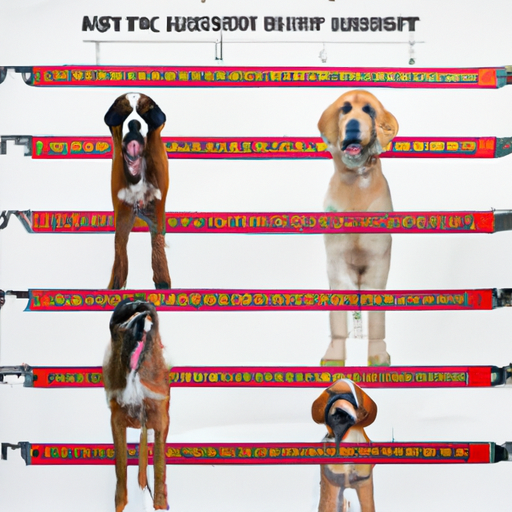As a caregiver, you are no stranger to the fact that dogs come in all shapes and sizes. But do you know how much time does it take for your large pooch to reach their full size? It can be a fascinating journey to watch, and it’s essential for their overall well-being.
Understanding Your Dog’s Growth
First and foremost, let’s understand how your dog grows. Dogs, especially large breeds, don’t stop growing in a year or two. It’s a gradual process that can take anywhere from 12 to 36 months.
- Puppy Stage: The first 4 to 6 months, your puppy will experience rapid growth.
- Adolescence: From 6 months to a year, the growth rate will slow down but continue persistently.
-
Adulthood: After the first year, your dog enters adulthood. The growth will slow down significantly, but they will continue to fill out.
-
Small Breeds: Mature by 12 months
- Medium Breeds: Mature by 18 months
- Large Breeds: Mature by 24 to 36 months
Factors Affecting Your Dog’s Growth
Several factors can affect your dog’s growth.
- Genetics: This is the primary determinant of your dog’s size. The breed of your dog can give you a general idea of what to expect.
- Nutrition: A balanced diet is crucial for your dog’s growth. Overfeeding or underfeeding can lead to health problems.
- Physical Activity: Regular exercise is essential for your dog’s muscle development and bone health.
Tracking Your Dog’s Growth
Keeping track of your dog’s growth can be both fun and informative.
- Keep a record of your dog’s weight and height.
- Take photos regularly to visually document the growth.
- Consult your vet to ensure your dog is growing at a healthy rate.
Common Health Issues in Large Dogs
Large dogs are prone to certain health issues due to their size.
| Health Issue | Description |
|---|---|
| Hip Dysplasia | A common skeletal condition, often seen in large or giant breed dogs |
| Bloat | A life-threatening condition where a dog’s stomach can expand with gas and twist |
| Heart Disease | Large dogs are at a higher risk of developing heart diseases |
FAQ
Q: When do large dogs stop growing?
A: Large dogs typically stop growing between the ages of 2 and 3.
Q: How can I tell if my dog is growing properly?
A: Regular vet check-ups and keeping a record of your dog’s weight and height can help.
Q: Are there health risks associated with rapid growth in dogs?
A: Yes, rapid growth can lead to skeletal issues in dogs, including hip dysplasia.
Q: Can diet affect a dog’s growth?
A: Absolutely! A balanced diet is essential for healthy growth in dogs.
Q: What is the average size for a large dog?
A: Large dogs usually weigh between 50 to 100 pounds.
Remember, every dog is unique and will grow at their own pace. As a caregiver, your role is to provide the right environment, nutrition, and care for your furry friend. Enjoy each moment of their growth journey!



